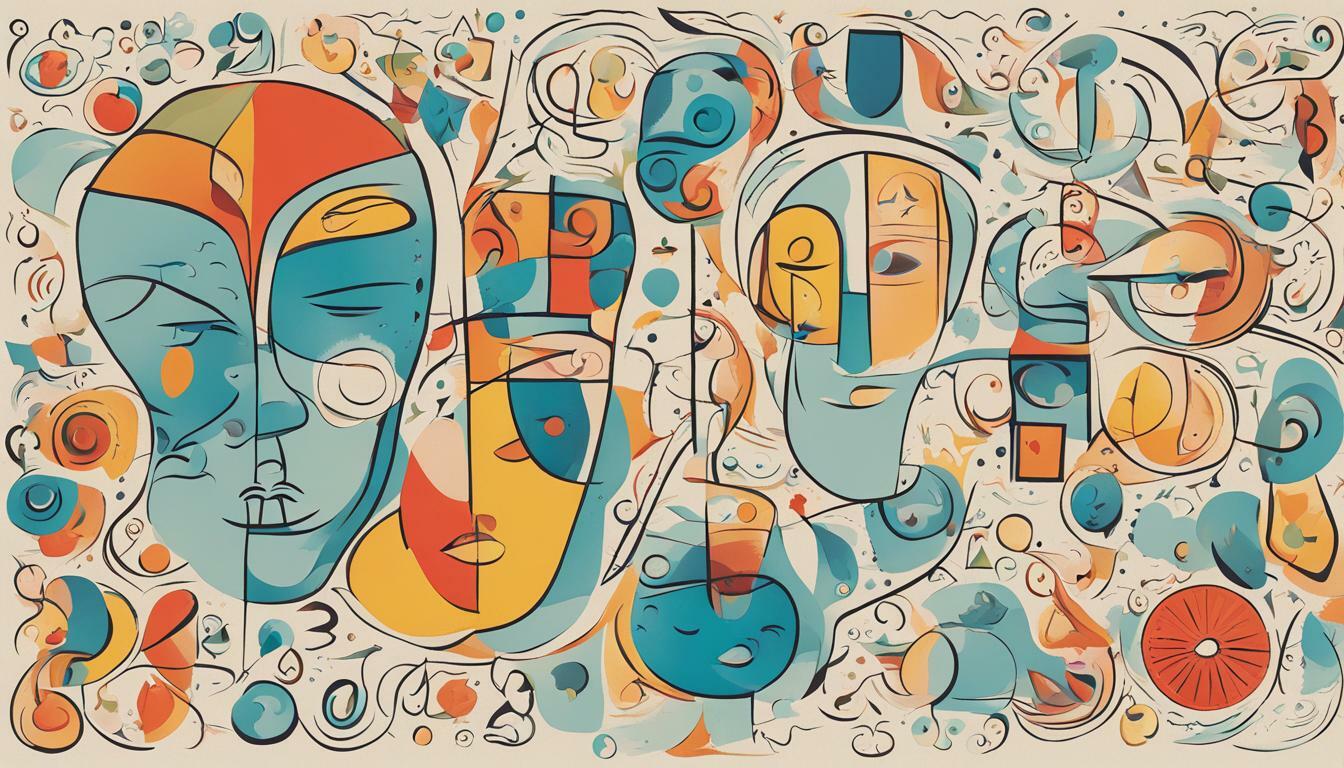Welcome to our comprehensive guide on mood disorders. At some point in our lives, we all experience changes in our mood and emotions. However, when these changes become persistent and interfere with our daily life, it may indicate a mood disorder.
Understanding what a mood disorder is and how it affects individuals is crucial in identifying and managing its symptoms. In this section, we will delve into the definition, causes, and effects of mood disorders to equip you with the knowledge you need.
Key Takeaways:
- Mood disorders are persistent changes in mood and emotions that can interfere with daily life.
- It’s important to understand the definition, causes, and effects of mood disorders in order to identify and manage symptoms.
Types of Mood Disorders
There are several types of mood disorders that can affect individuals in different ways. Understanding the specific type of mood disorder is crucial in obtaining an accurate diagnosis and effective treatment. Here, we will explore the most common types of mood disorders:
Major Depressive Disorder
Major depressive disorder, also known as clinical depression, is a type of mood disorder characterized by persistent feelings of sadness, hopelessness, and emptiness. Individuals may experience a lack of interest or pleasure in activities they once enjoyed and have trouble sleeping, eating, and concentrating.
Bipolar Disorder
Bipolar disorder is a type of mood disorder that involves periods of extreme mood swings, from manic episodes to depressive episodes. During manic episodes, individuals may experience high energy levels, increased self-esteem, and reckless behavior, while depressive episodes involve low mood and energy levels, among other symptoms.
Persistent Depressive Disorder
Persistent depressive disorder, also known as dysthymia, is a type of mood disorder characterized by long-lasting feelings of sadness and hopelessness. Symptoms may be less severe than major depressive disorder, but they can still impact daily life and relationships.
Other types of mood disorders include seasonal affective disorder, postpartum depression, and disruptive mood dysregulation disorder. It is important to seek professional help if you experience any symptoms of a mood disorder.
Symptoms and Signs of Mood Disorders
Understanding the signs and symptoms of mood disorders is crucial for effective diagnosis and treatment. While everyone experiences changes in mood from time to time, mood disorders are characterized by persistent and intense feelings of sadness, irritability, or euphoria that impact daily life.
Common symptoms of mood disorders include:
- Changes in mood: Individuals may experience persistent feelings of sadness, hopelessness, irritability, or euphoria that last for weeks or months.
- Changes in energy levels: Mood disorders can cause extreme fatigue, lethargy, or restlessness, making it difficult to carry out daily activities.
- Changes in sleep patterns: Sleep disturbances, such as insomnia or oversleeping, are often a hallmark of mood disorders.
- Changes in appetite: Mood disorders can cause significant changes in appetite, leading to weight loss or gain.
- Social withdrawal: Individuals with mood disorders may withdraw from social interactions and lose interest in activities they once enjoyed.
It’s important to note that these symptoms can vary depending on the type of mood disorder a person is experiencing. For example, symptoms of bipolar disorder can include manic episodes of high energy and impulsivity, while symptoms of persistent depressive disorder may be less severe but longer-lasting.
If you’re experiencing any of these symptoms, it’s essential to seek professional help for an accurate diagnosis. Left untreated, mood disorders can significantly impact your quality of life and lead to complications like substance abuse or suicidal thoughts.
Treating Mood Disorders
Effective treatment for mood disorders is available, and seeking professional help is the first step towards management and recovery. Treatment can include a combination of therapy techniques, medication, and lifestyle changes.
Therapy Techniques
Therapy techniques like cognitive-behavioral therapy (CBT) can help individuals understand their mood disorder and learn healthy coping mechanisms to manage symptoms. CBT can also improve communication and relationships with loved ones.
Medication
Medication can be an effective tool in managing mood disorders, especially when used in combination with therapy. Antidepressants, mood stabilizers, and antipsychotics are commonly prescribed.
Lifestyle Changes
Healthy lifestyle changes can also help manage symptoms of mood disorders. This can include regular exercise, a balanced diet, getting enough sleep, and reducing stress through relaxation techniques like meditation or yoga.
It’s important to remember that treatment for mood disorders is not one-size-fits-all. Consulting with a mental health professional is crucial to determine the best course of treatment for each individual.
Conclusion
Overall, understanding and recognizing mood disorders is crucial for maintaining our mental health and well-being. If you or a loved one are experiencing any symptoms, it is important to seek professional help for accurate diagnosis and treatment.
Remember, seeking help is a sign of strength and courage, and there are many effective treatment options available to help manage symptoms and promote recovery.
In conclusion, prioritizing our mental health is essential, and we encourage you to reach out for support and explore the resources available to you.
FAQ
Q: What is a mood disorder?
A: A mood disorder is a mental health condition characterized by persistent and intense changes in mood that significantly impact a person’s daily life.
Q: What are the different types of mood disorders?
A: The main types of mood disorders include major depressive disorder, bipolar disorder, and persistent depressive disorder. Each type has unique symptoms and duration.
Q: What are the common symptoms and signs of mood disorders?
A: Common symptoms of mood disorders include changes in mood, energy levels, sleep patterns, and social interactions. It is important to seek professional help for an accurate diagnosis.
Q: How are mood disorders treated?
A: Mood disorders can be treated through therapy techniques like cognitive-behavioral therapy (CBT), medication options, and lifestyle changes. These approaches help manage symptoms and promote overall well-being.





